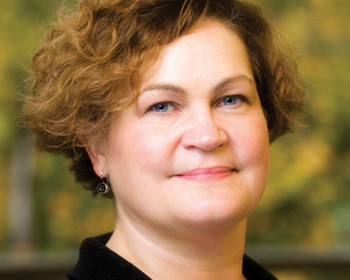Reflecting on 40 Years of Teaching Law
Open gallery
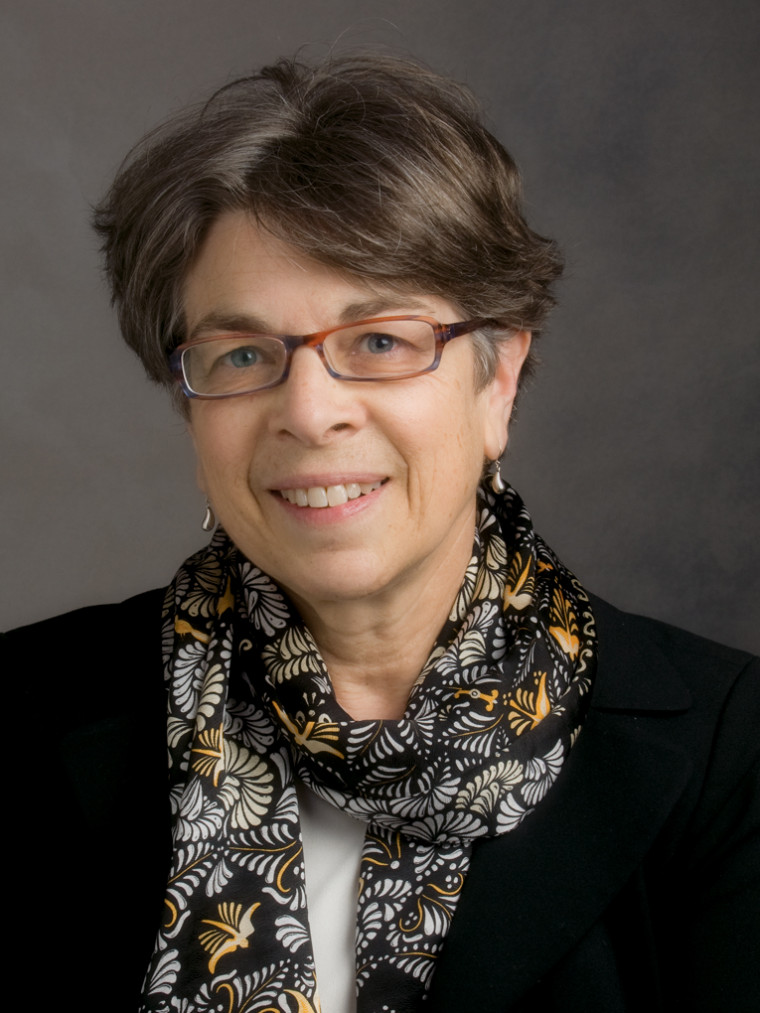
You might not expect someone who hated law school to spend her career in one. Yet, Distinguished Professor of Law Susan Mandiberg completed her last class after 42 years of teaching this past spring.
Susan did not set out to have a career in law, let alone be a law professor. After double majoring in Spanish and anthropology at Oberlin College, she attended two years of grad school at the University of Illinois before taking a leave of absence. She then spent two years editing social studies textbooks in Chicago and did anthropology fieldwork in highland Ecuador as part of her graduate studies before deciding to change course and attend law school at Berkeley. She was looking for a profession that would allow her to do interesting work, help people, and be self-supporting. At the time, she knew only two lawyers. One, her parents’ lawyer, told Susan that women could not be lawyers. The other, a law professor at Illinois and the husband of a woman in Susan’s PhD program, encouraged her to go for it.
Susan’s first job practicing law was at the Metropolitan Public Defender’s office alongside Steve Kanter, who went on to become professor and dean at Lewis & Clark Law School. Following that, Susan worked as a federal public defender and associate specializing in civil litigation with Stoel Rives Boley Jones & Grey in Portland. By then, Kanter had joined the faculty of Lewis & Clark and, when a position became available, reached out in hopes of recruiting a skeptical Susan. Knowing that Susan did not recall her law school experience fondly, Steve explained that Lewis & Clark was different; it was a place where students were the focus and truly mattered. Forty years later, Kanter reflected on Susan’s subsequent contributions to the law school. “Susan always brings intellect, heart, integrity, and a deep sense of justice to everything she does. Her students, the law school, and the wider community are the beneficiaries.”
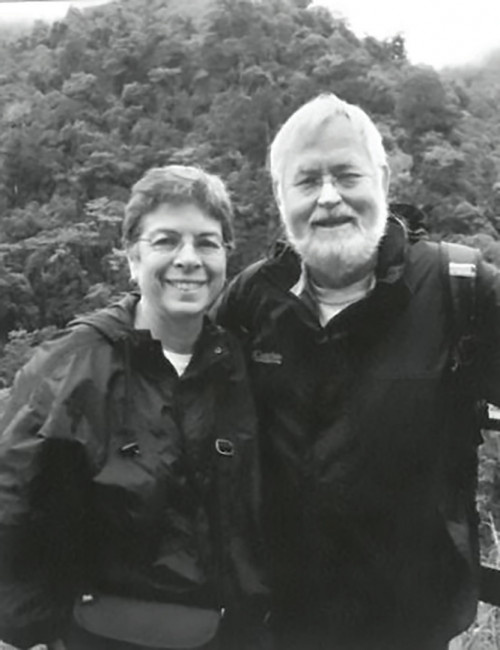
“Susan is a valued colleague and a good friend,” said Dean Jennifer Johnson. “Her insights into issues we faced and her ability to see the broad implications of a decision have contributed to the success of this law school. We will really miss her thoughtful evaluation of a problem, and I will miss being able to pop into her office to seek her counsel and wisdom.”
Susan’s accomplishments were noted by others over the years. Students have honored her with the Leo Levenson Award for Teaching Excellence twice. In 2020, she was presented with an honorary graduate award at the school’s Distinguished Honors ceremony. Susan was named a Jeffrey Bain Faculty Scholar in 2011 for her teaching, service, and scholarship. She took full advantage of her sabbaticals, once receiving a Fulbright and spending a year in Caracas, Venezuela, in 1988–89, where she taught courses in Spanish, including a seminar on comparative criminal procedure at la Universidad Católica Andrés Bello (Andrés Bello Catholic University), and a comparative constitutional law course that she co-taught with Humberto Briceño (who has been a visiting scholar at Lewis & Clark) at the Central University, the largest public university in Venezuela. She also gave lectures at various places around Venezuela on U.S. law.
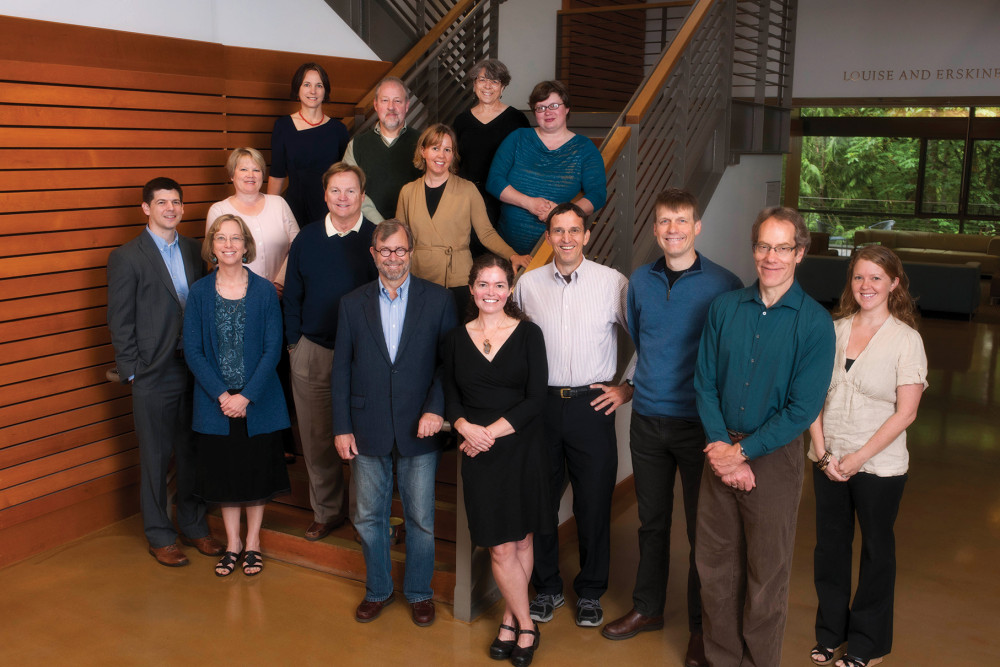
Susan has faith in her students’ potential to better their world and has gone above and beyond as a teacher and mentor. Kevin Cassidy ’02, former research assistant to Susan and currently a staff attorney at Earthrise Law Center, said, “I had the great fortune to work as Susan’s research assistant while in law school when she was updating her book, Crimes Against the Environment. Susan was meticulous about her research and analysis, and her example set an incredibly high bar for my own legal work going forward.” He went on to say, “I certainly applied the old adage ’take the professor, not the class’ when I was in law school. And that led me to take more of Susan’s classes than any other professor. I kept coming back because her classes were always interesting and thought-provoking. More than that, I appreciated the care and effort she put into teaching every class. Lewis & Clark was lucky to have someone like Susan, who cared so much about her students and their legal education.”
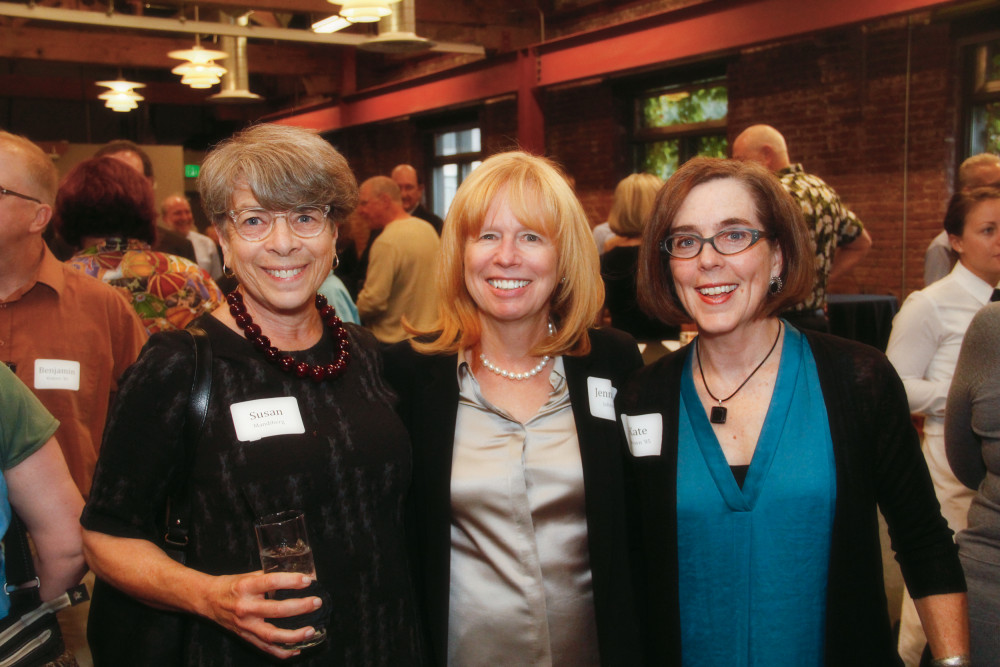
Credit: Andy Marion
Susan Felstiner BA ’88, JD ’94, former research assistant to Susan and current clinical professor of law, traveled with Susan to Venezuela in 1993, when the U.S. Embassy and U.S. Information Service brought Susan Mandiberg back to Venezuela to do a lecture and workshop tour about U.S. environmental law (in Spanish). Susan Felstiner served as Mandiberg’s RA and helped her put together the lectures and workshops. Felstiner said, “How do I condense nearly 30 years of invaluable mentorship into a quote?
“When I was a young, first-year law student, professor Mandiberg opened my mind to the concept of mens rea and its complex intersection with the neuroscience of addiction. She challenged me to think critically in class and on exams. When I was her research assistant, she inspired me with her scholarship on environmental crimes. I spent some time in Venezuela prior to law school and have strong connections with the country. As a first-year student, when I learned that she lived and taught in Caracas on a Fulbright, I went to her office to talk to her about her experiences. The conversation turned to her upcoming return trip to Venezuela. To my surprise, something inside me blurted out, “Can I come too?” To my further surprise, she said “Yes!” Susan, her husband, and their daughter graciously allowed me to tag along as we met with embassy and university officials across the country. They even let me share a hotel room with their 12-year-old daughter! That is just how Susan is: kind, generous, adventurous, and willing to open doors of opportunity for her students.
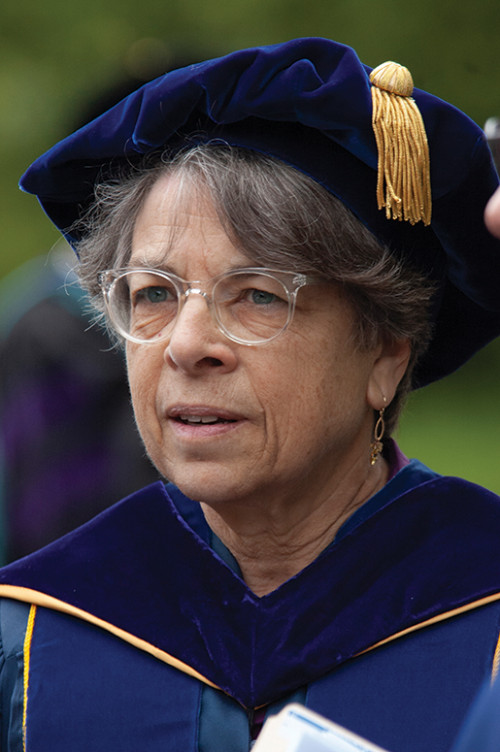
I have been fortunate to have her as a mentor in every step of my career, from landing my first lawyer position as a deputy district attorney for Marion County to my present position as clinical professor of law at Lewis & Clark Law School’s Small Business Legal Clinic.
I am one of the many students who have benefited from her teaching and mentorship. Her valuable contributions to the law school, academia, and the legal community will long be remembered.”
Susan has been integral in bettering the law school community. She created the Global Law Committee, partnering with other schools and recommending courses. She and other law faculty proudly cocreated the Loan Repayment Assistance Program in 2006. She has served in an administrative role as associate dean of faculty (2013–2016), which she recalls as a “learning experience.” She chaired the Curriculum Committee for years, as well as the Faculty Appointments Committee and the Diversity, Equity and Inclusion Committee. She has been involved with the Public Interest Law Project (PILP), and as one of Lewis & Clark’s Title IX adjudicators. In addition to her service, Susan also recognizes the critical importance of succession planning, smoothly transitioning others into roles that she vacates.
What Next?
Susan continues to write. She will continue to supervise students’ capstones, so will not part ways with L&C completely. She looks forward to having more time to dedicate to her extracurricular pursuits—playing piano, attending classical music performances, practicing tai chi, and spending time with her children and grandchildren.
More Advocate Magazine Stories
email jasbury@lclark.edu
voice 503-768-6605
Judy Asbury, Assistant Dean, Communications and External Relations
Advocate Magazine
Lewis & Clark Law School
10101 S. Terwilliger Boulevard MSC 51
Portland OR 97219
